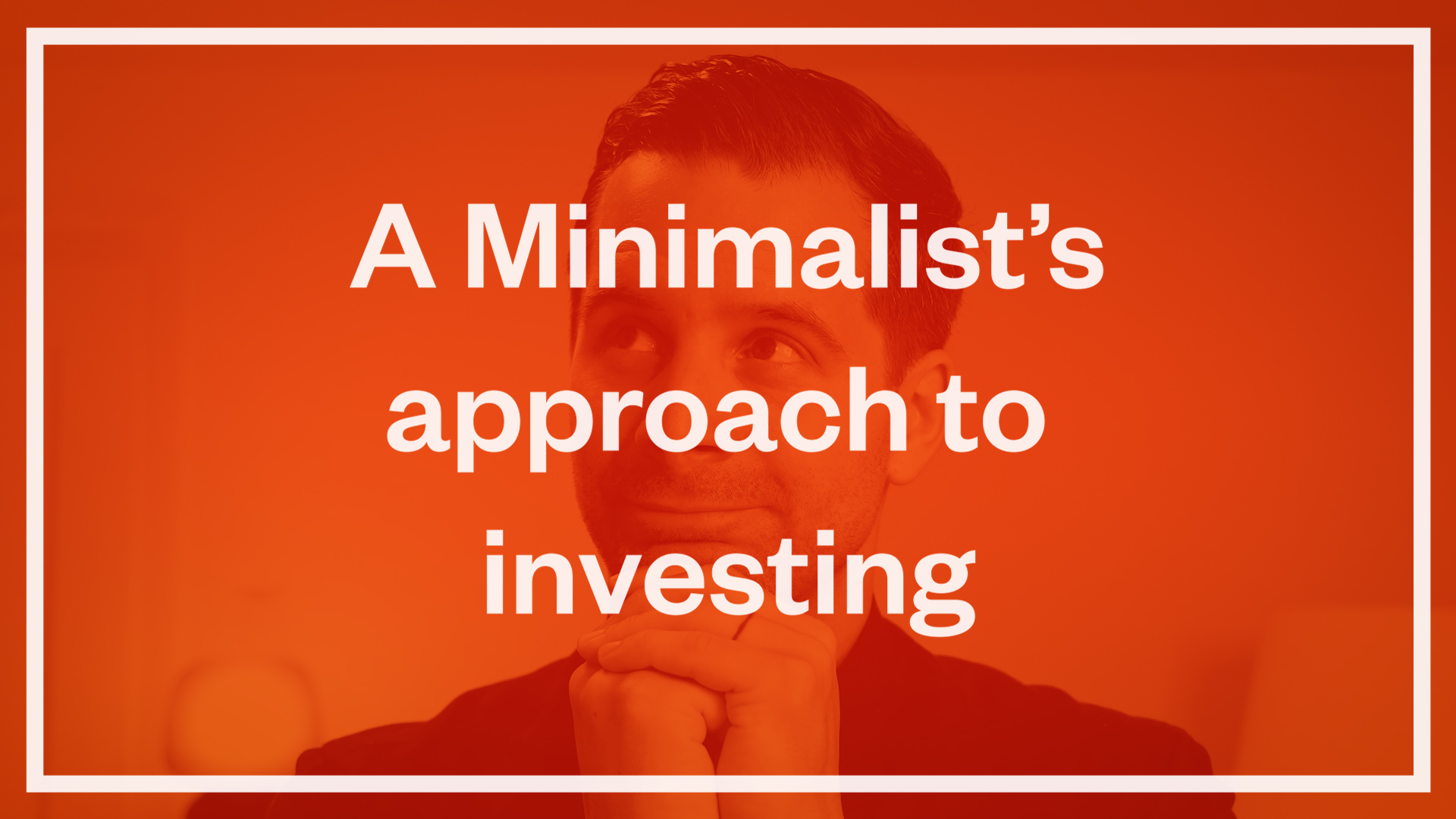How does my essentialist mindset impact my work as a venture investor – here’s an example.
Video Transcript
Hello, and welcome back to yet another question that I often get asked. And the question is, “How does my life as an essentialist, meaning, owning very few things and getting rid of everything that’s not essential… How does that impact my professional life as a venture capitalist and investor at Tomahawk.VC?”. So here’s how I think about it. In many ways, I tried to very clearly separate what brings value to me from what takes value from me, or if you want to replace the value with time, or just any resource that works as well. One way you can see this very well is by the 64 things that are all black for now about 50 personal items that I own in my personal life. That’s just one way of how it’s easy to see how I’ve gone through that process with all the physical belongings I have.
Investing in general
But I tried to apply the same thing to most areas of my life: the relationships that I invest in, the things that I allowed to occupy my brain. And then also the way I do my job as a venture investor. So here are a few takeaways before I talk about venture investing, investing in general.
I’m 100% in cash or venture
Personally, I’m 100% in cash or venture. I don’t own any public equities. I don’t own any real estate at this point. And that’s a very conscious decision. I’m 100% invested in one thing, venture investments, because I want to become world-class as a venture investor. Any other investments will just take time and resources and brainpower away, that could be invested into yet another venture investment where I could be making a step toward becoming world-class.
How do I function as a VC?
Now when it comes to venture investments, how do I function as a VC, and how does my essentialist thinking apply to my day to day life as an investor? So on the one hand, when it comes to portfolio diversification, we definitely have a strategy of less is more, meaning we’re not going to do spray and pray, we’re not going to try and invest into 50 or 100 companies with the funds that we have currently, or the next few years. But we’re going to try to be fairly focused, which means we’re going to build a portfolio of somewhere between 15 and 25 ventures. And then number two, how does this impact the way I interact with founders? I think one of the biggest and most common reasons early-stage ventures fail is that they are too opportunistic. Usually, resources: Time, Team is very restricted in the early phases of a startup’s life. And that means you cannot spread yourself too thin. For almost all cases that have failed, what I’ve seen is that the founding team has tried to do too many things at once, and then has failed, meaning they’ve tried to invest 20% in five different initiatives, instead of going 100% all-in on just one and make sure they are rockstars at what they’re doing. Once they succeed, they move on to the next thing and fill out the company step by step.
The same kind of mindset is Mark Zuckerberg with Facebook
I think one very good example of how someone very prominent has executed the same kind of mindset is Mark Zuckerberg with Facebook, where he’s been purely focused on growing the network and growing its membership. Before ever thinking about monetization, those two things still naturally align. And so it was very clever of him to go all-in on the first initiative before done, really thinking and building out all the tools, necessary resources to go deep on monetization.
If you could only do one thing right now, what would it be?
And so a question that I would often ask in board meetings or workshops, or just spontaneous calls with founders, is if you could only do one thing right now, what would it be? And I often asked that question when I realized that founders are kind of all over the place and are not making the progress they are trying to make from week to week right now. And that’s just one example of how I am applying that essentialist mindset to basically all areas of life, including that venture investment part.
And with that, stay curious, and I’ll talk to you soon.




